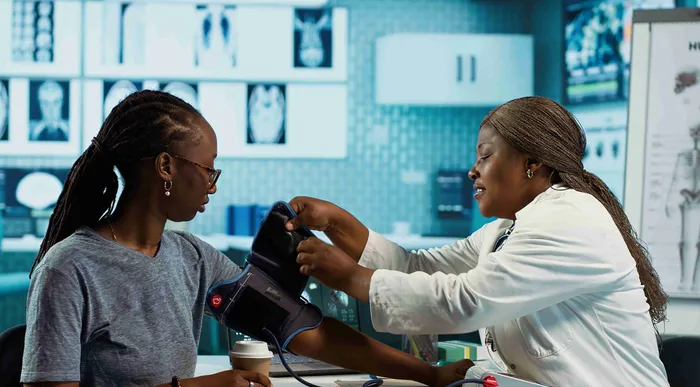Women’s Month: 5 health checks every woman should prioritise

Women often put their families and communities first, yet delay or overlook their own health needs. Whether it’s due to busy schedules, financial worries, or underestimating the risk, thousands of women miss out on critical screenings each year.
Image: Supplied
While women often juggle multiple roles in their families and communities, their own health needs can inadvertently fall by the wayside.
Busy schedules, financial pressures, and misconceptions about risks contribute to alarming statistics; thousands of women neglect critical health screenings each year.
With the clarion call, "Her health matters," Murray Hewlett, CEO of Affinity Health, underscores the vital nature of regular check-ups.
“The earlier we detect potential problems, the better the outcomes. Prioritising preventative care can save lives,” he stated, reflecting a pressing need that resonates particularly this month.
Here are five essential health checks every woman should schedule:
- Pap Smear and HPV Testing: Cervical cancer, one of the most preventable cancers, continues to claim lives in South Africa. Regular screenings are crucial for early detection. International guidelines recommend that women aged 25 to 65 undergo HPV testing every five years. If HPV testing is unavailable, a Pap smear and HPV co-testing every five years or a Pap smear alone every three years are also viable options. These screenings can detect abnormal cell changes before they escalate into cancer.
- Breast Examination and Mammograms: Despite common misconceptions, breast cancer does not only affect women over 50. Women should conduct regular self-exams, but clinical breast exams and mammograms are vital for detecting irregularities early. Women over 40, especially those with a family history of breast cancer, should discuss starting mammograms with their healthcare provider immediately.
- Blood Pressure, Cholesterol, and Glucose Tests: Heart disease is often mistakenly viewed as predominantly affecting men, yet it poses a significant risk to women as well. Cardiovascular disease is the leading cause of death among women globally. Symptoms related to high blood pressure, cholesterol, and blood sugar may be silent until a crisis occurs. Regular screenings are especially important for women over 35 or those with family histories of diabetes or heart issues.
- Reproductive and Hormonal Health: Symptoms such as painful periods, mood swings, weight changes, or infertility can indicate hormonal imbalances or conditions like PCOS or endometriosis. Consulting with a general practitioner for a check-up can help determine if further investigations are necessary. Understanding hormonal health is crucial for effectively managing perimenopause and menopause symptoms.
- Mental Health Check-Ins: Women are statistically more likely than men to experience depression and anxiety. Stigma and societal expectations often inhibit open discussions about mental health. This Women’s Month, integrating mental wellness into routine health checks is essential. Signs such as feeling overwhelmed, irritable, or persistently fatigued should not be overlooked. It’s vital to seek help when needed.
IOL
Related Topics: